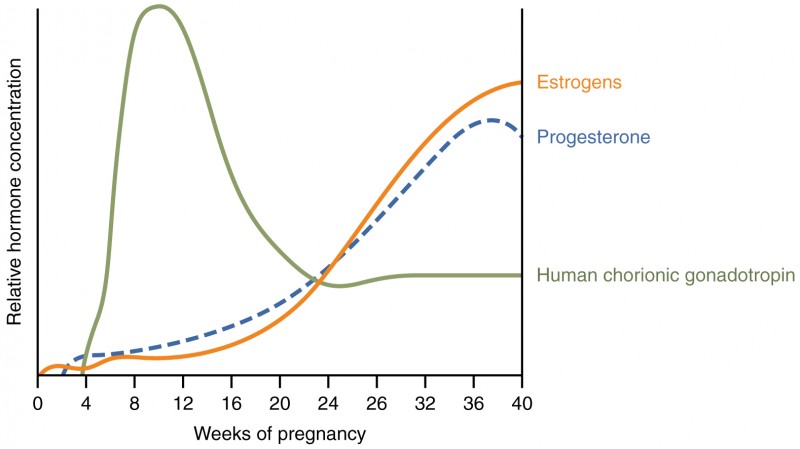
Progesterone and Early Pregnancy: A Vital Hormone for a Healthy Gestation
Introduction
Progesterone, a crucial hormone produced by the ovaries, plays a pivotal role in maintaining a healthy pregnancy. Its levels rise significantly during early pregnancy, contributing to the establishment and maintenance of the pregnancy. This article delves into the functions of progesterone in early pregnancy, its impact on the uterus, and the potential consequences of progesterone deficiency.
Functions of Progesterone in Early Pregnancy
Progesterone exerts a wide range of functions during early pregnancy, including:
- Uterine Relaxation: Progesterone relaxes the uterine muscles, preventing premature contractions and ensuring a stable environment for the developing embryo.
- Endometrial Transformation: It promotes the transformation of the uterine lining (endometrium) into a thick, nutrient-rich environment that supports embryo implantation and growth.
- Cervical Mucus Changes: Progesterone thickens cervical mucus, creating a barrier that prevents bacteria from entering the uterus.
- Immune Regulation: It modulates the immune system, suppressing maternal immune responses that could harm the developing fetus.
- Placental Development: Progesterone supports the development of the placenta, the organ that facilitates nutrient and oxygen exchange between the mother and fetus.
Impact on the Uterus
Progesterone’s relaxing effect on the uterus is crucial for maintaining pregnancy. By preventing uterine contractions, it creates a favorable environment for embryo implantation and fetal growth. Additionally, progesterone stimulates the growth of uterine blood vessels, ensuring adequate blood flow to the developing fetus.
Consequences of Progesterone Deficiency
Insufficient progesterone levels during early pregnancy can lead to several complications, including:
- Miscarriage: Progesterone deficiency can weaken the uterine lining, making it less receptive to embryo implantation and increasing the risk of miscarriage.
- Preterm Labor: Low progesterone levels can lead to premature uterine contractions, resulting in preterm labor and delivery.
- Ectopic Pregnancy: Progesterone helps prevent the embryo from implanting outside the uterus. Deficiency can increase the risk of ectopic pregnancy, a life-threatening condition.
Monitoring Progesterone Levels
Monitoring progesterone levels during early pregnancy is essential for assessing the health of the pregnancy and identifying potential problems. Blood tests can measure progesterone levels, and serial measurements can track changes over time.
Treatment for Progesterone Deficiency
If progesterone deficiency is suspected, treatment options may include:
- Progesterone Supplementation: Synthetic progesterone can be administered orally or vaginally to supplement low levels.
- In Vitro Fertilization (IVF): In some cases, progesterone supplementation is used in IVF to support the implantation and maintenance of the embryo.
Conclusion
Progesterone is an indispensable hormone for early pregnancy. Its functions in uterine relaxation, endometrial transformation, cervical mucus changes, immune regulation, and placental development are essential for establishing and maintaining a healthy pregnancy. Monitoring progesterone levels and providing supplementation when necessary can help prevent complications and promote a successful pregnancy.